Your healthcare organization is inundated with data – and you’re not alone. According to recent HIMSS research, approximately 30% of the world’s data volume is generated by the healthcare industry. With the sheer volume of data your organization creates, how are you supposed to make heads or tails of it all? The answer lies in your healthcare analytics strategy.
Today, we’re going beyond the data to uncover five additional benefits to leveraging healthcare analytics your current analytics strategy may not have realized yet. Layers of deep contextual understanding can uncover more than what your traditional out-of-the-box dashboards are telling you. A robust, healthy data analytics strategy offers a wealth of strategic advantages for your patient population and your organization.
Healthcare organizations must begin to leverage more broad-spectrum benefits of advanced analytics strategies beyond the evident advantage of informed decision-making and operational optimization. Advanced healthcare analytics can provide additional dimensions healthcare providers can use to enhance patient care and organizational efficiency while fortifying data security measures to gain sharper foresight into future population, health and financial trends. Embracing these nuanced benefits is essential for shaping a resilient and proactive healthcare analytics strategy in today’s rapidly evolving environment of digital transformation.
Here are the five additional benefits organizations realize when leveraging healthcare analytics strategies we’ve uncovered:
Relevancy. Leverage intelligence to tell a meaningful story.
One of the most useful aspects of any healthcare analytics platform is the ingestion of data to provide instant, out-of-the-box insights and reporting. These insights are translated into significant understanding of patient and business health. And when your organization needs insights beyond the base, that’s precisely where relevance becomes a game-changer.
Applying deep understanding, contextual logic and advanced population data provides an additional layer of intelligence to your healthcare analytics strategy. This intelligence defines relevancy within your healthcare organization and patient population, allowing for the derivation of deeper insight into the overall needs of your practice and/or system.
Efficiency. Go beyond the baseline to realize measures beyond pure competency.
Healthcare analytics lays the foundation for continual assessment of key performance indicators on a regular basis. Quantifiable insight into targets-based metrics, performance enhancements or deficiencies, as well as population measurement drives overall efficiency.
Compliance. Data security and regulatory compliance applies to healthcare analytics, too.
Adherence to HIPAA and other data regulation standards is of utmost importance for healthcare professionals today. With the FTC handing out stiff fines for non-compliance, healthcare data analytics strategies have taken a major hit.
Proper healthcare analytics platforms provide HIPAA-compliant processes to aggregate and translate raw data into meaningful, actionable insight into patient populations.
Preparedness. Forecast accurately and often to accommodate your patient and organizational needs.
While healthcare providers and healthcare analytics providers don’t have crystal balls, they do have their data. And that’s just as good if not better.
Data analysis provides organizations with intelligent, data-driven scenarios for understanding population and care trends, providing insights to properly understand and forecast for seasonal trends or the upcoming health needs of a population. Healthcare providers can practice effective preparedness with properly purchase medications, staff clinics and hospitals, and ensure in-network providers are available to offer care needed by their patients.
Cost Intelligence. Dive deep into the financials.
Perhaps the most often underutilized aspect of healthcare analytics is the intelligence available around cost. Insight into out-of-network spending, hospital readmission following diagnosis or practitioner care, repeated expenses or fiscal waste can be utilized to alleviate overspending and focus efforts on improving care quality.
Conclusion
Healthcare analytics can give you a true understanding of the entire ecosystem of your healthcare organization – from patients to treatment to practitioners to business processes.
Understanding how to properly aggregate and contextualize your data helps to uncover deep, contextual insights that redefine how healthcare organizations understand and serve their patients. Beyond enhancing efficiency and ensuring compliance, this level of intelligence can provide strategic advantages to forecast future trends, improve cost management, and fortify data security. By leveraging these nuanced benefits, healthcare providers can realize and proactively shape digital transformation with a a resilient strategy that meets their current needs while anticipating and adapting to the evolving landscape of patient care and organizational efficiency.




